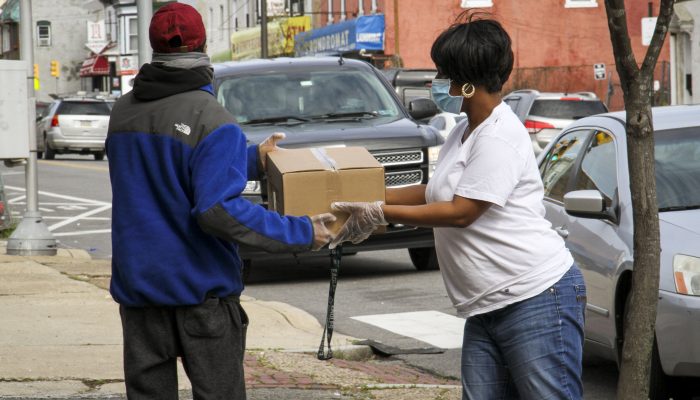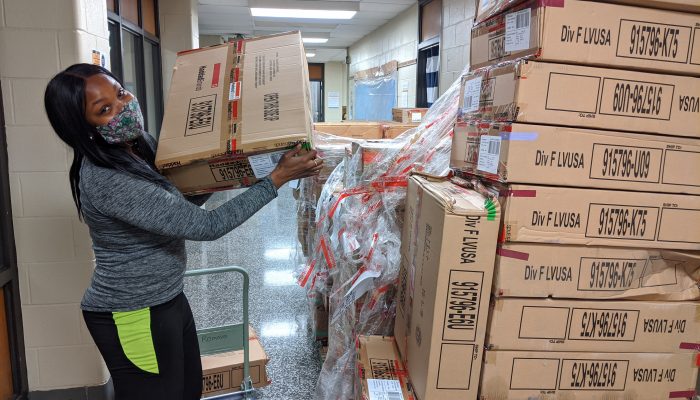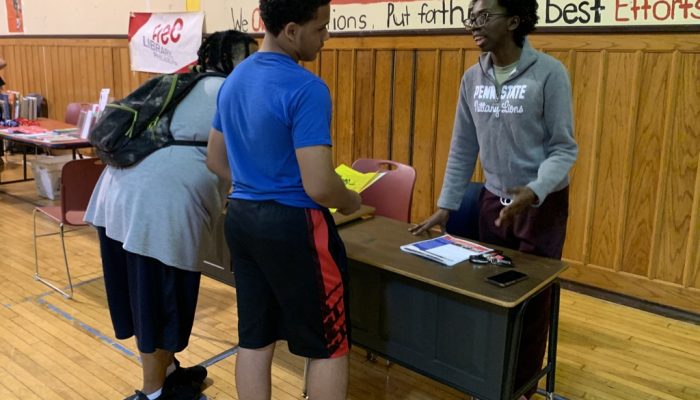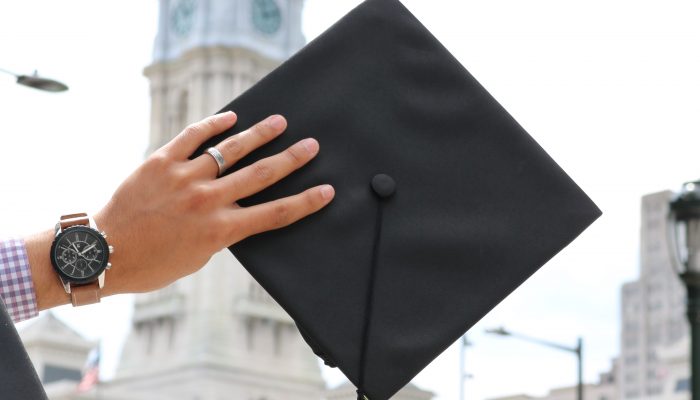Community Schools are a partnership between the City of Philadelphia, the School District of Philadelphia, and school communities to remove barriers to learning and support the success of each student. In each Community School, a Community School Coordinator works with the school’s leadership and community partners to implement programs and activities that promote wellness, stability, and learning opportunities for students, families, and neighbors.
Being a community school means being responsive to the needs of the community. When COVID-19 closed schools in March, that created new needs and challenges for school communities. Here’s how Philadelphia’s community schools responded:
At Cramp Elementary School, coordinator Will Reed and the school team had been working hard to prepare for a kindergarten open house when schools closed and COVID-19 made in-person events prohibitive. Rather than cancel the event entirely, the Cramp team moved the event online, making the school’s early childhood education team available for questions from prospective parents. (Note: Registration for kindergarten is still open.)
At Alexander McClure Elementary School, coordinator Catherine Collazos supported the school’s virtual Family Hour series. This series created an online space where families could learn about new resources and updates from the School District, and have discussions about the issues they were facing during the quarantine.
With food access more important than ever, coordinator Charles Reyes was determined to keep the community around Murrell Dobbins CTE High School fed. Having worked with Philabundance for the past three years to run a weekly “Fresh For All” distribution at the school, Charles acted quickly to find a new location for the distribution after schools closed. Thanks to this partnership, residents continued to have weekly access to free, fresh food.
Coordinator Ester Roche-Curet was instrumental in keeping families at Hamilton Disston School connected by hosting virtual events such as Spirit Day, Virtual Yearbook, and Facebook live events focusing on summer learning opportunities.
Wanting to make sure all families at F.S. Edmonds School were engaged and felt supported by the school, coordinator Robin M. Torrence was effective in connecting with families who were struggling. She connected them to local food access partners, helped to distribute hygiene products, and helped with Chromebook distributions.
With an eye on continued educational success for the families of Gideon Elementary School, Greg Wright helped families stay connected. Working with the school team, he identified families without internet access and worked to get them an internet hotspot device from the School District of Philadelphia. Greg also worked with a local partner and members of City Council to set up a food distribution site outside of Gideon Elementary School beginning in June.
As Chromebook distribution began at Samuel Gompers School, coordinator Rennie Parker stepped up to help Gompers families get connected. He arranged pick up times, coordinated distributions, and helped families connect with the District on tech issues. He also hosted two virtual partner meetings to assess ways to support the community remotely, so that he could identify resources to share with families if they were in need of specific supports.
Antonio Romero was a critical support for students at Kensington Health Sciences Academy during virtual learning. He worked with the school’s leadership team to help encourage student attendance. Through open discussions, incentive programs, and regular check-ins, KHSA regularly hit 80% or more daily attendance levels across all four grades while the school was closed.
Supporting a large population of families without permanent housing, Pamela Evans worked tirelessly to keep the families of Alain Locke School healthy and safe. She utilized a family tracker to identify the biggest needs for families and used her partner team and local supports to fill in those gaps.
With food sites being supported locally by partners and the City, Collette Butler worked to ensure that Logan Elementary School families’ hygiene needs were also being met. She organized hygiene care packages and distributed them to children and families. She also promoted literacy goals by distributing books to families, as well as signing up partners to read to Logan students at night over Zoom.
As families at Overbrook Educational Center began to change the way that they learned and lived, Caroline Robinson focused on making sure no family was without support. She helped families sign up for food deliveries, and developed a wellness tracker to help staff check in on families to identify any needs or barriers to learning.
At Richard R. Wright School, coordinator Caitlyn Nichols stepped up to help families and keep the lines of communication open She updated resource guides for families to use, worked with Cradles to Crayons to get essential items for children, and continuously verified and updated the contact information of Wright families.
At South Philadelphia High School, coordinator Janelle Harper helped students navigate the digital learning landscape in order to ensure they would be able to graduate on time. She also spent time speaking directly to parents, keeping them aware of what requirements students needed to complete in order to graduate in June.
Southwark School coordinator Liz Hejlek helped g families during quarantine by coordinating food and diaper deliveries. She also helped the school create a partnership with a local produce company that provided free food box deliveries to 30 families in need every week.
Coordinator Caitlyn Boyle worked hard to make sure families at George Washington High School had information about COVID-19 related resources, like rental assistance, food distributions, and childcare. She created a resource guide specifically for the Northeast section of Philadelphia that families and community members could use.
In an effort to keep Webster Elementary School families connected, coordinator Shira Smillie continued sharing resources with them via multiple platforms, including Class Dojo, the school’s email system, and the school’s website.
Even though the school year is over, Community Schools are a year-round effort. Coordinators and school staff are still collaborating this summer to serve families and identify more ways to support student success. Stay tuned for more updates from Community Schools!




